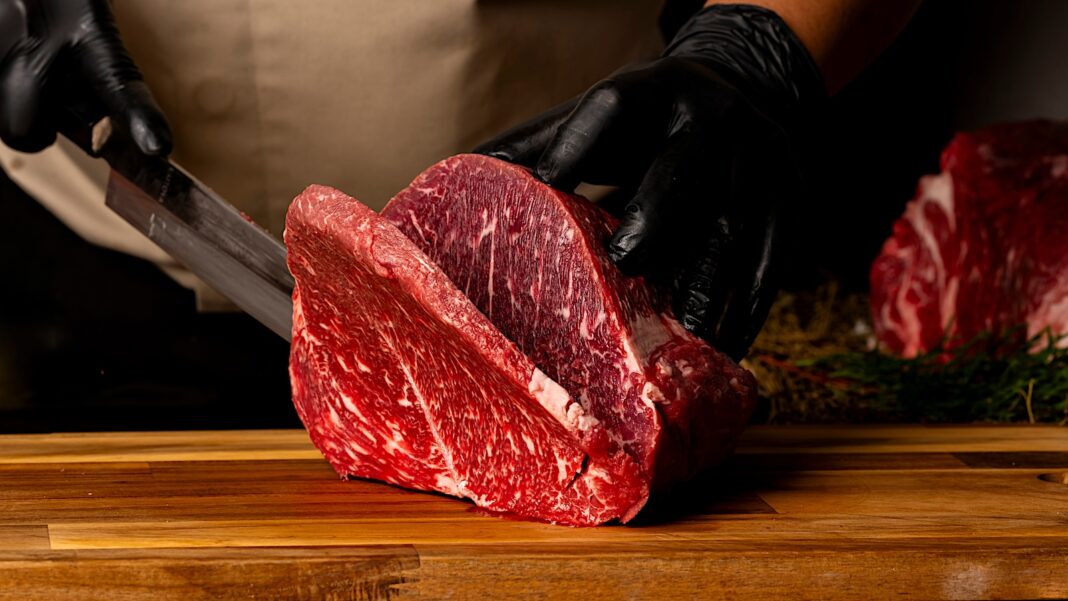A Study on Red Meat
Red meat, including pork, beef, goat, veal, mutton, and lamb, is a rich source of protein and vital nutrients that aid muscle growth and hormone production. However, its impact on gut health remains a topic of debate, leaving many to wonder: Is red meat a friend or foe?
A Study on Red Meat
Thomas DeLauer, a renowned nutrition coach, health author, and celebrity trainer, recently weighed in on the relationship between red meat and gut health. In his analysis, he drew insights from scientific research to share his perspective.
How Does Meat Affect Gut Health?
N-Glycolylneuraminic acid (Neu5Gc) is used to evaluate how red meat impacts gut health. Neu5Gc is a type of sialic acid produced by most mammals that humans consume as food. While humans produced this compound millions of years ago, a genetic mutation eventually stopped its production. Many plant-based advocates argue that red meat is harmful due to the body’s unusual immune response. DeLauer, however, suggests that this reaction may be linked to Neu5Gc. A healthy gut should prevent Neu5Gc from being absorbed into the body, potentially mitigating this response altogether.
A study that fed mice a diet high in Neu5Gc for four weeks showed results of increases in Bacteroides and clostridial bacteria, which are linked to enzymes capable of breaking down Neu5Gc. Neu5Gc isn’t problematic; it enters the body and is eventually excreted.
TMAO in Red Meat
Trimethylamine N-oxide (TMAO) has been closely linked to various inflammatory conditions and cardiovascular diseases. Red meat contains L-carnitine, which is converted into trimethylamine (TMA) and further processed into TMAO. This compound triggers numerous harmful inflammatory responses in the body.
Meat Fermentation
Meat in our gut can ferment and produce hydrogen sulfide—a compound that should be avoided if possible. Fortunately, there are solutions: proteases help break down proteins, preventing L-carnitine from converting into TMA.
Heme Iron
Excessive iron intake from red meat may impact gut health. This issue arises when red meat dominates the diet without a proper balance of other essential nutrients. To maintain a healthy gut, prioritize fiber-rich foods first and moderate red meat.
Conclusion
DeLauer challenged the notion that adverse effects often associated with red meat consumption are entirely due to the meat itself. Incorporating fiber to support gut health when consuming red meat can help remedy potential negative responses.
References
- Lee, J. E., McLerran, D. F., Rolland, B., Chen, Y., Grant, E. J., Vedanthan, R., Inoue, M., Tsugane, S., Gao, Y. T., Tsuji, I., Kakizaki, M., Ahsan, H., Ahn, Y. O., Pan, W. H., Ozasa, K., Yoo, K. Y., Sasazuki, S., Yang, G., Watanabe, T., Sugawara, Y., & Sinha, R. (2013). Meat intake and cause-specific mortality: a pooled analysis of Asian prospective cohort studies. The American journal of clinical nutrition, 98(4), 1032–1041. https://doi.org/10.3945/ajcn.113.062638
- Zaramela, L. S., Martino, C., Alisson-Silva, F., Rees, S. D., Diaz, S. L., Chuzel, L., Ganatra, M. B., Taron, C. H., Secrest, P., Zuñiga, C., Huang, J., Siegel, D., Chang, G., Varki, A., & Zengler, K. (2019). Gut bacteria responding to dietary change encode sialidases that exhibit preference for red meat-associated carbohydrates. Nature microbiology, 4(12), 2082–2089. https://doi.org/10.1038/s41564-019-0564-9





